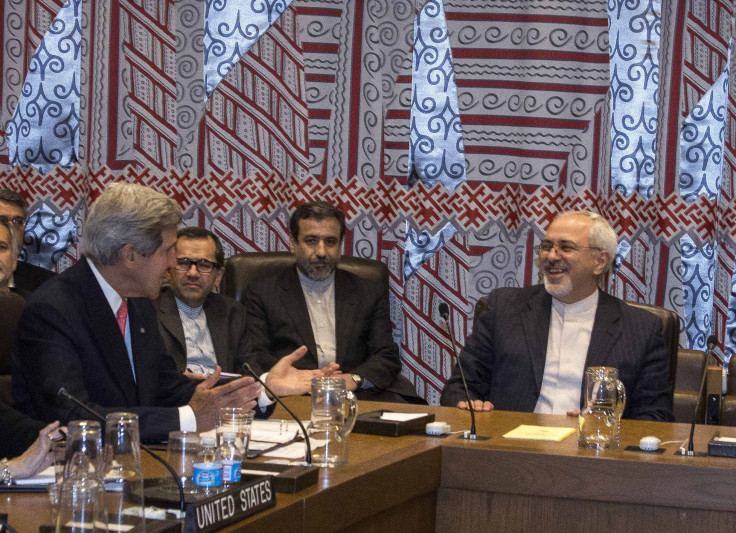Kerry, Zarif To Meet For Final Talks In Iran Nuclear Deal

U.S. Secretary of State John Kerry and Iranian Foreign Minister Mohammad Javad Zarif are scheduled to meet in a marathon of talks to seal a deal centered on the Islamic Republic’s nuclear program before a Nov. 24 deadline. Kerry and Zarif will hold meetings with European Union foreign-policy chief Catherine Ashton in Oman Nov. 9-10, after Ashton’s meeting with the five permanent members of the United Nations Security Council plus Germany in Vienna Nov. 7, Al-Monitor reported.
The so-called P5+1 group -- China, France, Russia, the U.K. and the U.S., plus Germany -- and Iran have been working toward clearing a long-standing impasse in the latter’s nuclear program by the end of November. However, U.S. security officials said there have been significant gaps that needed to be addressed before a deal could be finalized. Last week, a key Iranian negotiator raised the possibility of extending the deadline to help resolve the deadlock between Iran and the P5+1 group.
The two sides have met several times during the past few months to discuss reducing economic sanctions against Iran should it stop its efforts to enrich uranium, which at high purity could be used to make bombs. After meetings held in July failed to provide a solution to the problem, the negotiators extended the deadline to November. Although Iran has repeatedly said its nuclear program is for research purposes, Western powers believe it is an excuse to develop nuclear weapons -- and Israel has issued repeated threats of force to stop its archenemy Iran from gaining nuclear weapon technology. The West hopes a nuclear deal will ease tensions and curb a full-scale conflict in the already troubled Middle East.
Secret talks between the U.S. and Iran were previously held in Oman. They helped lead to the interim nuclear deal in November 2013, which froze some parts of Iran’s atomic program in exchange for limited sanctions relief. Washington cut off diplomatic ties with Iran’s capital of Tehran during the hostage crisis after the 1979 Islamic revolution, and American-led international sanctions have since crippled the Iranian economy.
© Copyright IBTimes 2024. All rights reserved.











